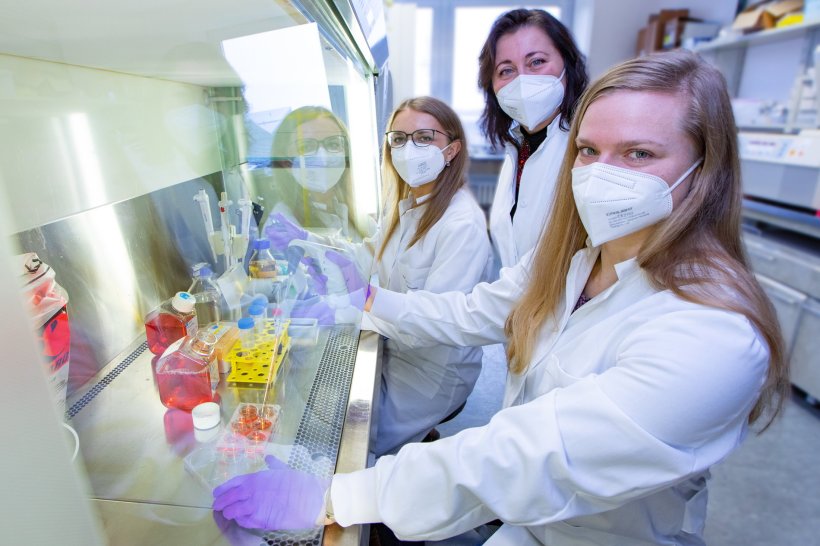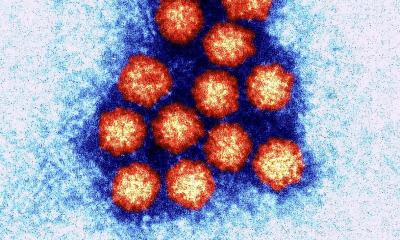
© Karin Kaiser/ MHH
News • Prevention through infection
Vaccine against liver cancer and fibrosis shows promise
Liver cancer is the third most common cause of cancer-related deaths worldwide. So far, the treatment options for two types of liver cancer, hepatocellular carcinoma (HCC) and cholangiocarcinoma (CCA), have been inadequate, while the number of new cases has been rising.
A study by researchers at the Hannover Medical School (MHH) and the Helmholtz Centre for Infection Research (HZI) now offers hope. A vaccine based on a highly attenuated infectious agent called Listeria monocytogenes proved to be safe and effective protection in premalignant and malignant liver diseases in preclinical mouse models. The study results were published in the journal Oncogene.
The vaccine also proved safe in mice with liver fibrosis, which belong to the risk group for the development of liver cancer, and was also able to activate the immune system
Inga Hochnadel
"Our Listeria-based vaccine delivers tumour-specific antigens while rapidly and efficiently activating an immune response that actively targets the liver tumour. As a result, the activated immune system keeps the growth of the liver tumour under control," explains Dr Tetyana Yevsa, coordinator of the study and head of the research group in the Department of Gastroenterology, Hepatology and Endocrinology at MHH.
"In prophylactic vaccination of healthy mice in which liver cancer was later induced, survival increased to 100 per cent when vaccinated twice. The vaccine also proved safe in mice with liver fibrosis, which belong to the risk group for the development of liver cancer, and was also able to activate the immune system. This is particularly necessary to detect pre-malignant cells that can form into tumours and to eliminate them at an early stage," says first author and doctoral student Inga Hochnadel, who conducts research in the MHH working group headed by Dr Tetyana Yevsa.
"In the case of an already existing tumour, the therapeutic use of the vaccine proved to be slightly more complicated," adds co-first author Dr Lisa Hönicke, who conducted research under the direction of Dr Tetyana Yevsa. "When combined with antibody therapy, which is standard of care for liver cancer patients, the Listeria vaccine was shown to be more effective than antibody or Listeria therapy alone and prolonged the survival of mice even in advanced stages of the disease, giving us all great hope for such combination therapy in the clinic."
For the researchers, the Listeria monocytogenes-based vaccine is an "all-in-one package": "The Listeria-based vaccine activates the immune system but without causing infection and proves to be very safe. One advantage of this vaccine is that it can be adapted with little effort and a wide variety of tumour-specific antigens can be integrated," says Professor Dr Dunja Bruder, head of the Immunoregulation research group at the HZI. "Tumour development in the preclinical mouse models we have established is similar to that in humans," says Dr Tetyana Yevsa. "Therefore, mouse data provide transferable insights to liver cancer patients, for example with regard to the efficacy of drugs. Consequently, the models have a high clinical relevance."
Quelle: Hannover Medical School
21.02.2022





